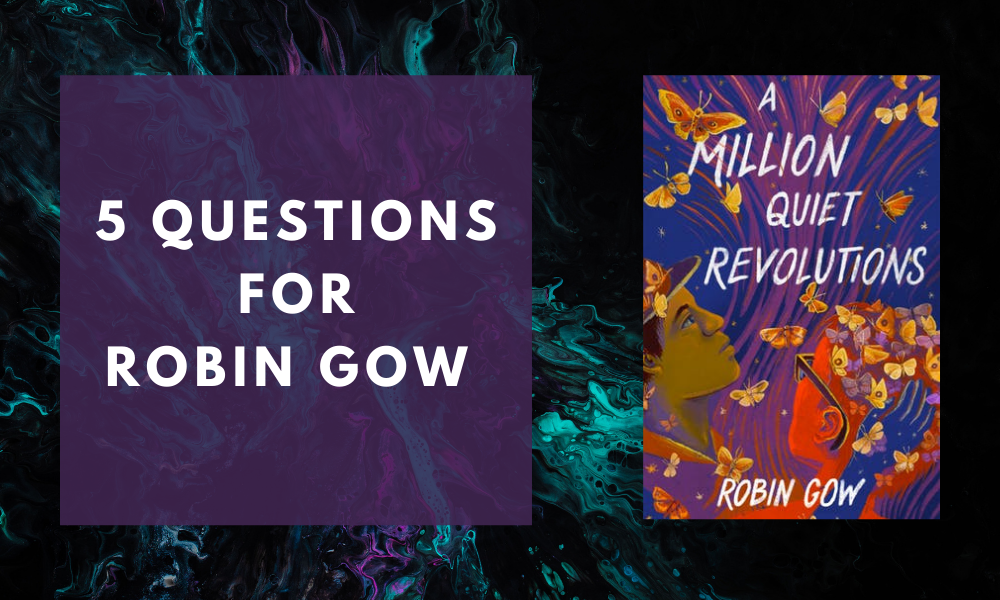Robin Gow is a trans and queer poet, editor, and educator from rural Pennsylvania. Their books include A Million Quiet Revolutions and Blue Blood. They are the director and founder of Transcendent Connections, an organization that provides trans education resources to support trans youth. Gow also founded the New York City trans and queer reading series Gender Reveal Party. They live in Pennsylvania with their pugs, Gertrude and Eddie.
.
Voyage: What was the inspiration behind your novel, A Million Quiet Revolutions? What made you want to tell this story?
Robin Gow: There are a lot of little inspirations that came together to build the story, but the main one is I just wanted to write a story I needed when I was a queer young person. When I was growing up I didn’t see anyone like myself represented anywhere, and it made it hard for me to find the language to know myself. I wanted to give a story to open up conversations about what it means to delve into queer history and also a story where there’s beautiful vibrant love between trans people.
.
V: When you write your stories, what is the one thing you hope readers will take away?
RG: That LGBTQ+ history is interwoven into all eras of history. We have always existed, mostly our stories have just always been filtered out through centuries of mainly cis and straight historians.
.
V: What was the hardest scene of A Million Quiet Revolutions to write?
RG: Any scenes where the boys (Aaron and Oliver) are having difficult conversations with their parents. The subject is still hard for me, and so it was actually both hard to write scenes where family members refused to be supportive and scenes where they do show characters love and support. I have a pretty good relationship with my family now, but when I first came out it was very painful to me. It’s always hard to navigate all the emotions that come up in moments like these and I wanted to convey that in the verse—one boy loves his family deeply but also feels harmed by them, and both those things exist simultaneously for him. I felt it was important to share this experience so others know they’re not alone in having complicated feelings.
.
V: If you could tell your younger writer self anything, what would it be?
RG: I would tell them to be more open to uncertainty and curious about yourself. There is so much pressure for young people to be so certain about the future and to be so driven. I have found comfort lately in uncertainty and not knowing where a project will take me and for so long as a young writer I was very publication oriented. José Esteban Muñoz writes about queerness as being “not yet here” in his book Cruising Utopia. Reading a definition of queerness that felt very permission-giving for me to explore weird or uncertain projects. I’m still not 100% sure what that means, but I think I could have used that permission to explore myself and not have to have a fixed answer to who I wanted to become or what I wanted “to do” with my writing.
.
V: What are your writing must-haves?
RG: Noise-canceling headphones and sound machines. Some sort of stim toy to help me stay focused. My favorite time to write is early morning when it’s raining or snowing outside.
.
Head to our Instagram page (@voyageya) to hear Robin read the first page of A Million Quiet Revolutions! Find Robin’s video under the videos tab.

